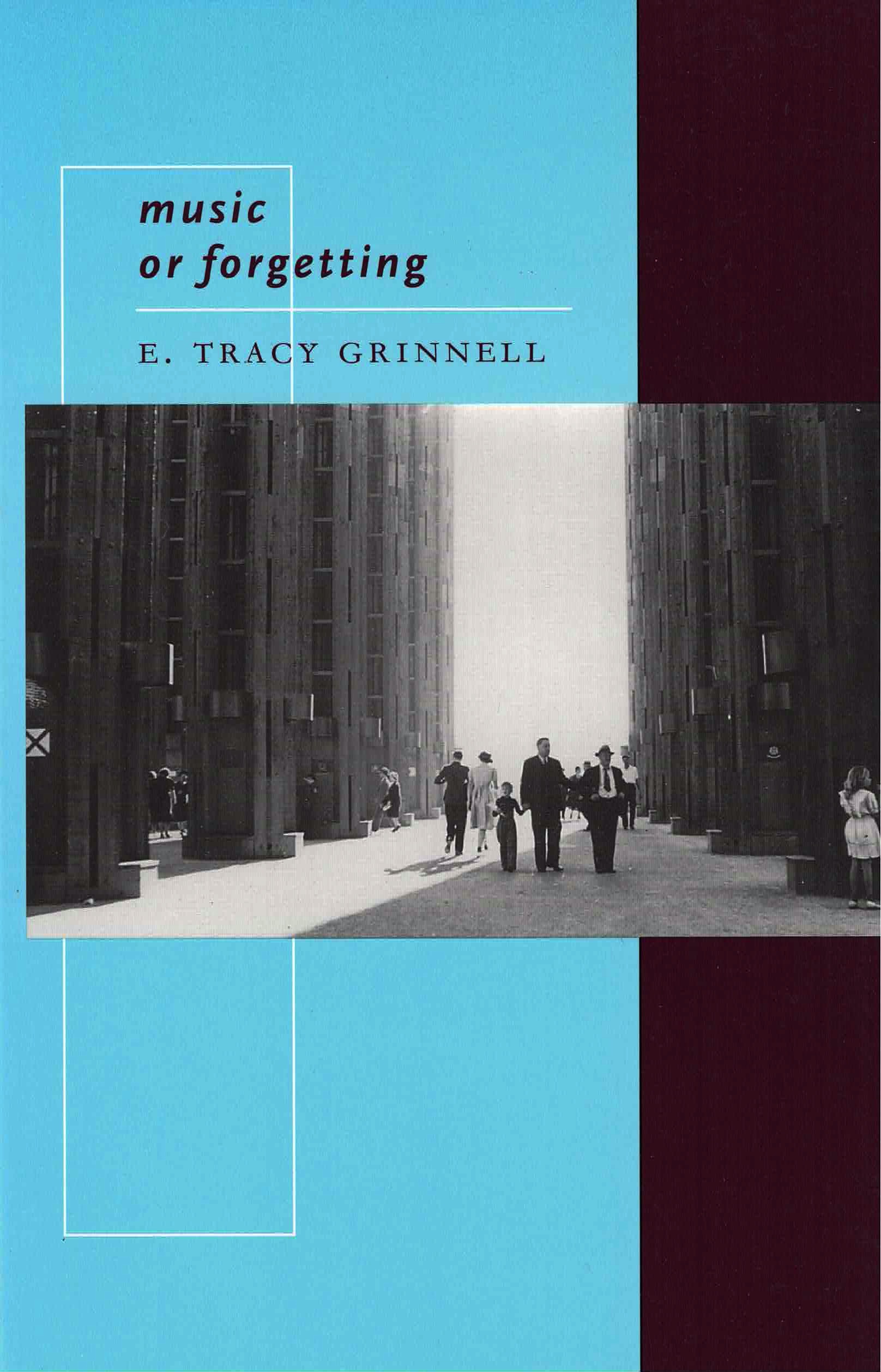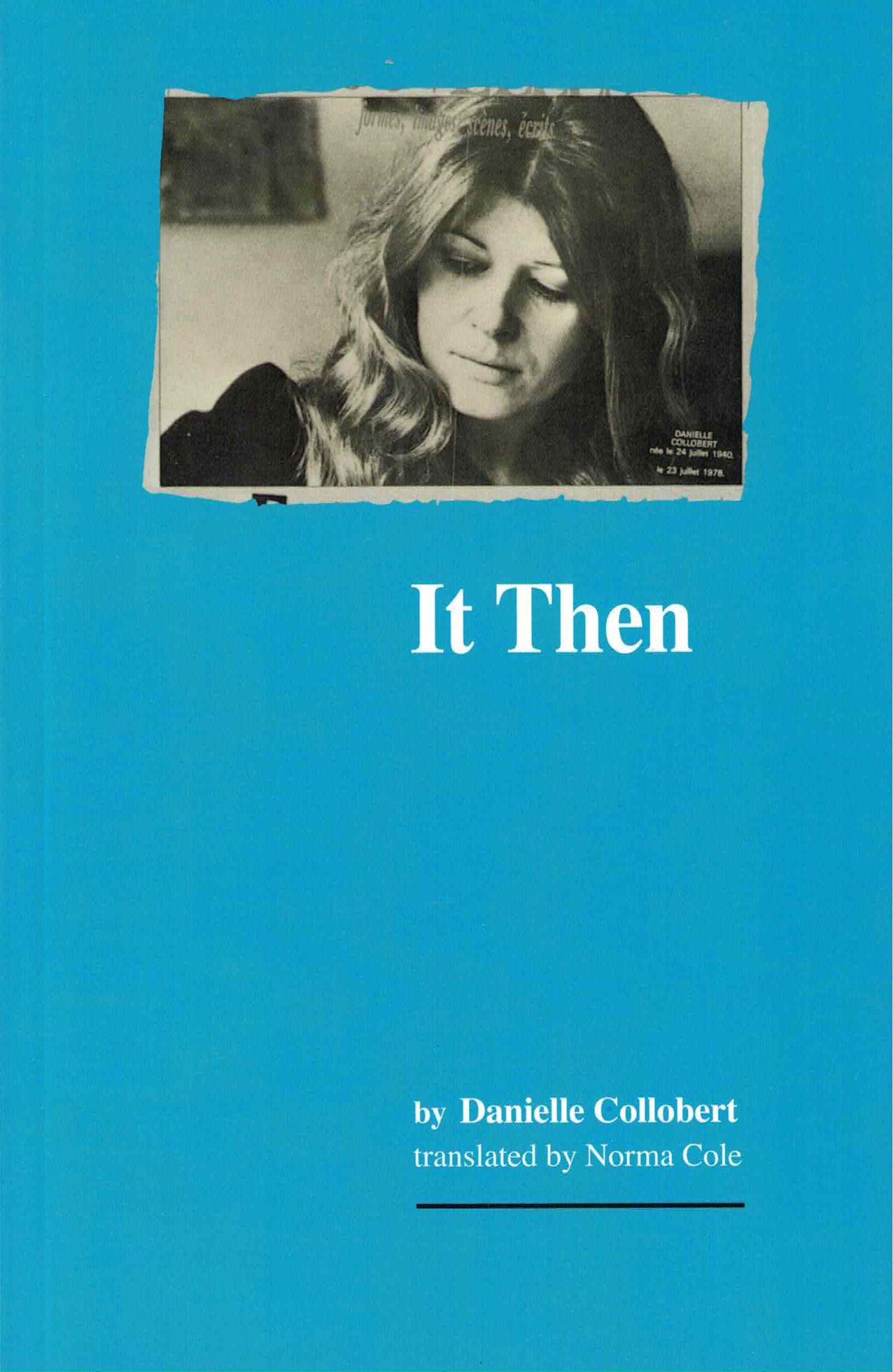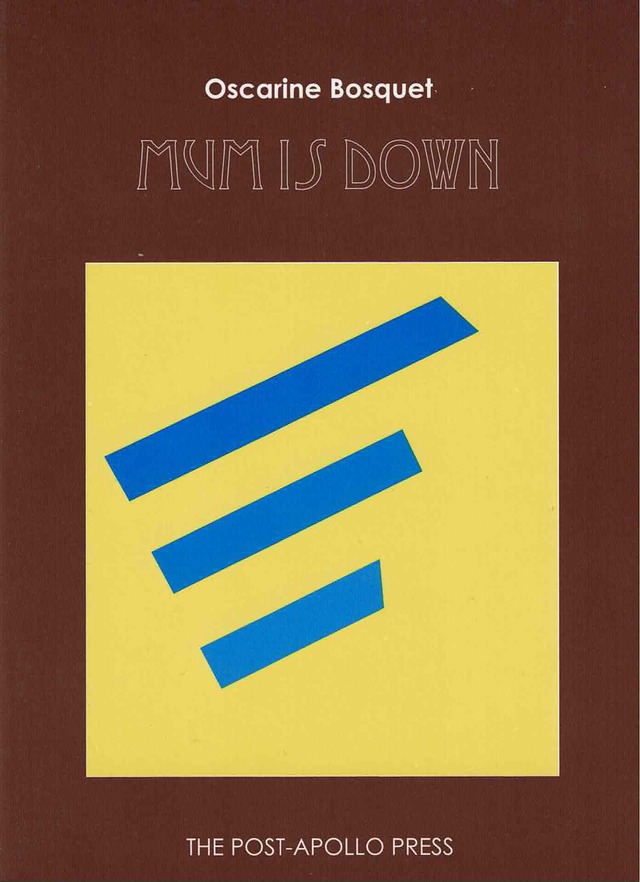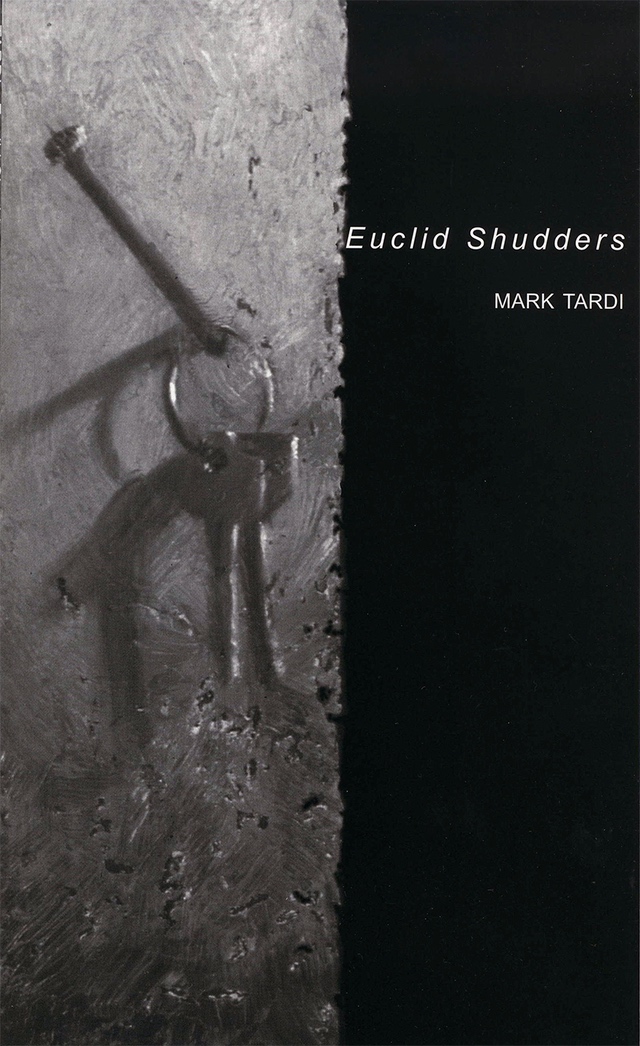In music or forgetting, E. Tracy Grinnell’s first collection, poems are diachronic cartography. As in the title, a single line may be her memory and conjecture being the same space and time at only “the present time of the poem.” Or, her memory and conjecture are the same, cumulatively absorbed, as if there is no speaker or seer in a long quiet present, which becomes its music: “historically / waves are either synchronic, / spatial, or / new presence of body presupposes dialogue.”
E. Tracy Grinnell
Praise for music or forgetting
In E. Tracy Grinnell’s music or forgetting the fragile traces of a life are lifted; a figure emerges as landscape; the body, a heathered slope. A view, a vista is offered, open and solitary, identified not by web works of interiors but by wakefulness. Time is marked by the distance of summers rather than a crush of events. The language intimates aspects of drawing, mobile, etude in which color, space, detail are sparingly applied; absence intensifies presence. The poetry obtains a distillation into human memory.
— C.D. Wright
A word turns up, takes a turn with one phrase and another, a tone, an intonation. Almost-repetition there is no. Sense is tested against sound in turns and torques of grammar-and multiples, fruitful. At every turn. “Not one kind of” music. You won’t forget it.
— Rosmarie Waldrop





Much like a musical variation, the fragments are shed by — or perhaps into — contemplation, are notations that move time. And again, like music, the results are atmospheric, the response emotional.
— Mark Tardi, Jacket2